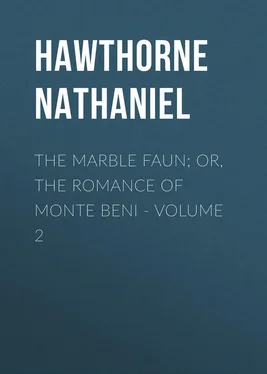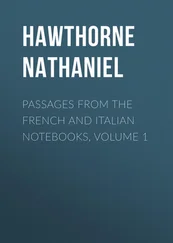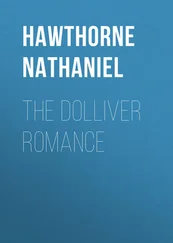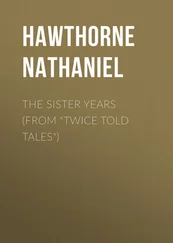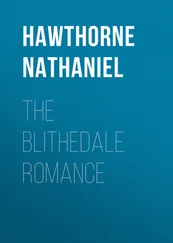Nathaniel Hawthorne - The Marble Faun; Or, The Romance of Monte Beni - Volume 2
Здесь есть возможность читать онлайн «Nathaniel Hawthorne - The Marble Faun; Or, The Romance of Monte Beni - Volume 2» — ознакомительный отрывок электронной книги совершенно бесплатно, а после прочтения отрывка купить полную версию. В некоторых случаях можно слушать аудио, скачать через торрент в формате fb2 и присутствует краткое содержание. Жанр: literature_19, foreign_antique, foreign_prose, на английском языке. Описание произведения, (предисловие) а так же отзывы посетителей доступны на портале библиотеки ЛибКат.
- Название:The Marble Faun; Or, The Romance of Monte Beni - Volume 2
- Автор:
- Жанр:
- Год:неизвестен
- ISBN:нет данных
- Рейтинг книги:3 / 5. Голосов: 1
-
Избранное:Добавить в избранное
- Отзывы:
-
Ваша оценка:
- 60
- 1
- 2
- 3
- 4
- 5
The Marble Faun; Or, The Romance of Monte Beni - Volume 2: краткое содержание, описание и аннотация
Предлагаем к чтению аннотацию, описание, краткое содержание или предисловие (зависит от того, что написал сам автор книги «The Marble Faun; Or, The Romance of Monte Beni - Volume 2»). Если вы не нашли необходимую информацию о книге — напишите в комментариях, мы постараемся отыскать её.
The Marble Faun; Or, The Romance of Monte Beni - Volume 2 — читать онлайн ознакомительный отрывок
Ниже представлен текст книги, разбитый по страницам. Система сохранения места последней прочитанной страницы, позволяет с удобством читать онлайн бесплатно книгу «The Marble Faun; Or, The Romance of Monte Beni - Volume 2», без необходимости каждый раз заново искать на чём Вы остановились. Поставьте закладку, и сможете в любой момент перейти на страницу, на которой закончили чтение.
Интервал:
Закладка:
“What! Turn monk?” exclaimed his friend. “A horrible idea!”
“True,” said Donatello, sighing. “Therefore, if at all, I purpose doing it.”
“Then think of it no more, for Heaven’s sake!” cried the sculptor. “There are a thousand better and more poignant methods of being miserable than that, if to be miserable is what you wish. Nay; I question whether a monk keeps himself up to the intellectual and spiritual height which misery implies. A monk I judge from their sensual physiognomies, which meet me at every turn — is inevitably a beast! Their souls, if they have any to begin with, perish out of them, before their sluggish, swinish existence is half done. Better, a million times, to stand star-gazing on these airy battlements, than to smother your new germ of a higher life in a monkish cell!”
“You make me tremble,” said Donatello, “by your bold aspersion of men who have devoted themselves to God’s service!”
“They serve neither God nor man, and themselves least of all, though their motives be utterly selfish,” replied Kenyon. “Avoid the convent, my dear friend, as you would shun the death of the soul! But, for my own part, if I had an insupportable burden, — if, for any cause, I were bent upon sacrificing every earthly hope as a peace-offering towards Heaven, — I would make the wide world my cell, and good deeds to mankind my prayer. Many penitent men have done this, and found peace in it.”
“Ah, but you are a heretic!” said the Count.
Yet his face brightened beneath the stars; and, looking at it through the twilight, the sculptor’s remembrance went back to that scene in the Capitol, where, both in features and expression, Donatello had seemed identical with the Faun. And still there was a resemblance; for now, when first the idea was suggested of living for the welfare of his fellow-creatures, the original beauty, which sorrow had partly effaced, came back elevated and spiritualized. In the black depths the Faun had found a soul, and was struggling with it towards the light of heaven.
The illumination, it is true, soon faded out of Donatello’s face. The idea of lifelong and unselfish effort was too high to be received by him with more than a momentary comprehension. An Italian, indeed, seldom dreams of being philanthropic, except in bestowing alms among the paupers, who appeal to his beneficence at every step; nor does it occur to him that there are fitter modes of propitiating Heaven than by penances, pilgrimages, and offerings at shrines. Perhaps, too, their system has its share of moral advantages; they, at all events, cannot well pride themselves, as our own more energetic benevolence is apt to do, upon sharing in the counsels of Providence and kindly helping out its otherwise impracticable designs.
And now the broad valley twinkled with lights, that glimmered through its duskiness like the fireflies in the garden of a Florentine palace. A gleam of lightning from the rear of the tempest showed the circumference of hills and the great space between, as the last cannon-flash of a retreating army reddens across the field where it has fought. The sculptor was on the point of descending the turret stair, when, somewhere in the darkness that lay beneath them, a woman’s voice was heard, singing a low, sad strain.
“Hark!” said he, laying his hand on Donatello’s arm.
And Donatello had said “Hark!” at the same instant.
The song, if song it could be called, that had only a wild rhythm, and flowed forth in the fitful measure of a wind-harp, did not clothe itself in the sharp brilliancy of the Italian tongue. The words, so far as they could be distinguished, were German, and therefore unintelligible to the Count, and hardly less so to the sculptor; being softened and molten, as it were, into the melancholy richness of the voice that sung them. It was as the murmur of a soul bewildered amid the sinful gloom of earth, and retaining only enough memory of a better state to make sad music of the wail, which would else have been a despairing shriek. Never was there profounder pathos than breathed through that mysterious voice; it brought the tears into the sculptor’s eyes, with remembrances and forebodings of whatever sorrow he had felt or apprehended; it made Donatello sob, as chiming in with the anguish that he found unutterable, and giving it the expression which he vaguely sought.
But, when the emotion was at its profoundest depth, the voice rose out of it, yet so gradually that a gloom seemed to pervade it, far upward from the abyss, and not entirely to fall away as it ascended into a higher and purer region. At last, the auditors would have fancied that the melody, with its rich sweetness all there, and much of its sorrow gone, was floating around the very summit of the tower.
“Donatello,” said the sculptor, when there was silence again, “had that voice no message for your ear?”
“I dare not receive it,” said Donatello; “the anguish of which it spoke abides with me: the hope dies away with the breath that brought it hither. It is not good for me to hear that voice.”
The sculptor sighed, and left the poor penitent keeping his vigil on the tower.
CHAPTER XXX
DONATELLO’S BUST
Kenyon, it will be remembered, had asked Donatello’s permission to model his bust. The work had now made considerable progress, and necessarily kept the sculptor’s thoughts brooding much and often upon his host’s personal characteristics. These it was his difficult office to bring out from their depths, and interpret them to all men, showing them what they could not discern for themselves, yet must be compelled to recognize at a glance, on the surface of a block of marble.
He had never undertaken a portrait-bust which gave him so much trouble as Donatello’s; not that there was any special difficulty in hitting the likeness, though even in this respect the grace and harmony of the features seemed inconsistent with a prominent expression of individuality; but he was chiefly perplexed how to make this genial and kind type of countenance the index of the mind within. His acuteness and his sympathies, indeed, were both somewhat at fault in their efforts to enlighten him as to the moral phase through which the Count was now passing. If at one sitting he caught a glimpse of what appeared to be a genuine and permanent trait, it would probably be less perceptible on a second occasion, and perhaps have vanished entirely at a third. So evanescent a show of character threw the sculptor into despair; not marble or clay, but cloud and vapor, was the material in which it ought to be represented. Even the ponderous depression which constantly weighed upon Donatello’s heart could not compel him into the kind of repose which the plastic art requires.
Hopeless of a good result, Kenyon gave up all preconceptions about the character of his subject, and let his hands work uncontrolled with the clay, somewhat as a spiritual medium, while holding a pen, yields it to an unseen guidance other than that of her own will. Now and then he fancied that this plan was destined to be the successful one. A skill and insight beyond his consciousness seemed occasionally to take up the task. The mystery, the miracle, of imbuing an inanimate substance with thought, feeling, and all the intangible attributes of the soul, appeared on the verge of being wrought. And now, as he flattered himself, the true image of his friend was about to emerge from the facile material, bringing with it more of Donatello’s character than the keenest observer could detect at any one moment in the face of the original Vain expectation! — some touch, whereby the artist thought to improve or hasten the result, interfered with the design of his unseen spiritual assistant, and spoilt the whole. There was still the moist, brown clay, indeed, and the features of Donatello, but without any semblance of intelligent and sympathetic life.
Читать дальшеИнтервал:
Закладка:
Похожие книги на «The Marble Faun; Or, The Romance of Monte Beni - Volume 2»
Представляем Вашему вниманию похожие книги на «The Marble Faun; Or, The Romance of Monte Beni - Volume 2» списком для выбора. Мы отобрали схожую по названию и смыслу литературу в надежде предоставить читателям больше вариантов отыскать новые, интересные, ещё непрочитанные произведения.
Обсуждение, отзывы о книге «The Marble Faun; Or, The Romance of Monte Beni - Volume 2» и просто собственные мнения читателей. Оставьте ваши комментарии, напишите, что Вы думаете о произведении, его смысле или главных героях. Укажите что конкретно понравилось, а что нет, и почему Вы так считаете.
